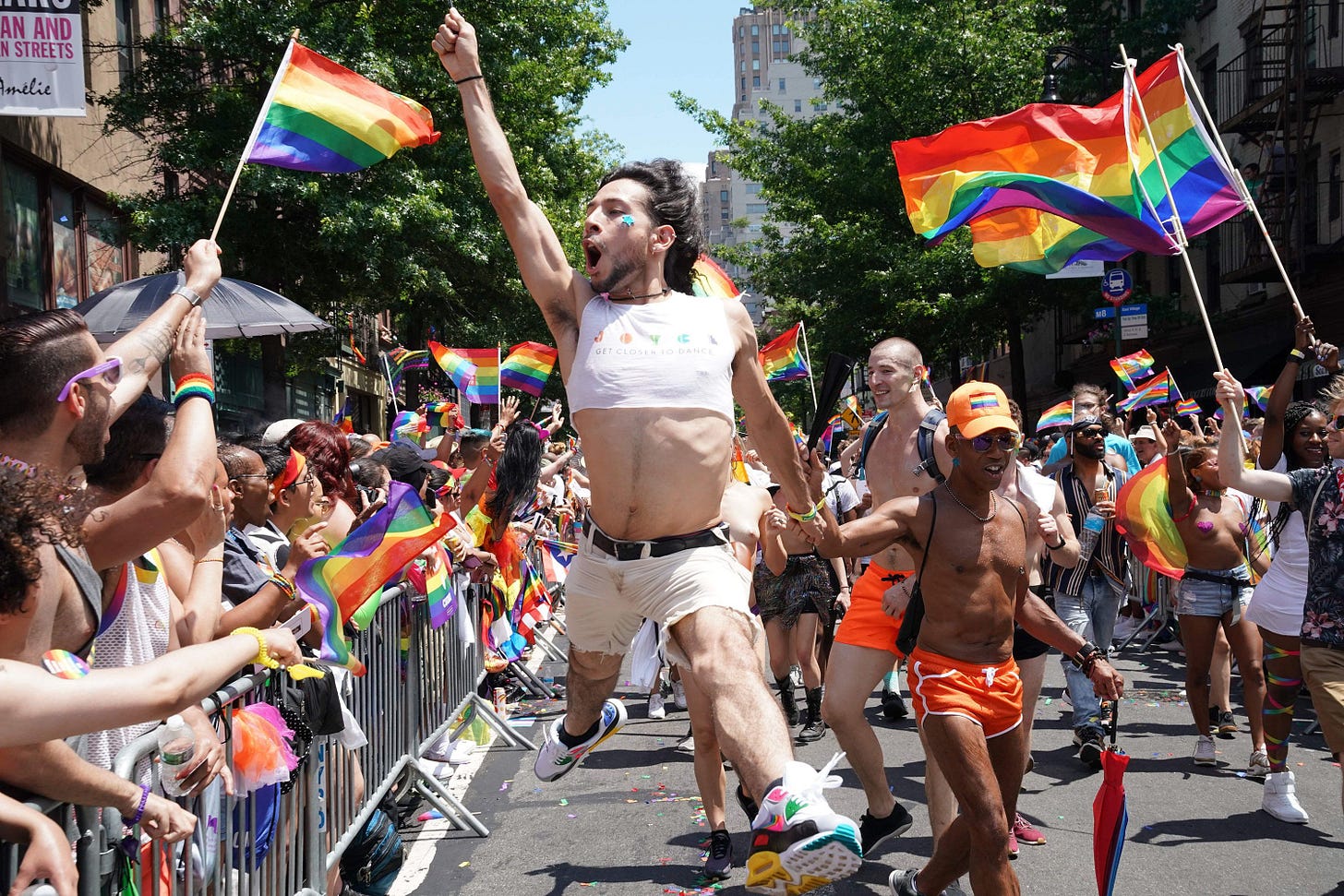A new installment of Journey of a New Christian. First-time reader? This introduction provides an overview. If you missed earlier installments, you can find them in this index to the series.
The text for the sermon was 1 Peter 5:8: “Be sober-minded, be watchful. Your adversary the devil prowls around like a roaring lion, seeking someone to devour.” The warning is directed to elders, of whom I am now one, whose job it is to watch over the flock.
I have not seen the devil. But I have seen his works in others’ lives and in my own. I have felt his work in the pride that I carry inside me, that caused me for so many years not to call out to God, and for so many more years not to acknowledge Jesus.
I have seen his influence in the sly grin of colleagues who try to undermine me. I have felt it in the boasting of supervisors who aggrandize themselves at the expense of faithful subordinates. I have sensed it in the promises of politicians who offer to fix what isn’t broken and to repair what cannot be repaired. I have felt his work and seen his influence. But I still do not understand who he is and what he wants.
And now, as a new Christian but paradoxically also a newly-elected elder in the church, I am told I must remain alert, watch for what I do not know, and protect the flock from someone I don’t understand. My head is reeling at the thought. Protect how? Peter counsels: “Humble yourselves, therefore, under the mighty hand of God . . . casting all your anxieties on him, because he cares for you” (1 Peter 5:6-7).
Though only four years have passed since my baptism, I have at least learned about casting my cares on Him. Every day I pray for His guidance. At night, after the lights are out, I pray about whatever still troubles me and remind myself how I’ve come to trust Him over these recent years. If I’m anxious or wakeful, I recite in my head the books of the Bible. Only rarely do I get as far as Isaiah.
A final song follows the sermon, then the benediction. As others depart, several of us wash communion dishes and fold table linens. Outside the sun on the newly-sealed macadam feels good after the chill of morning. My wife and I agree—it was a strong sermon. I’m still dazed by the image of the roaring lion, but I’m also hungry. Lunch awaits, and then a nap.
I spend the afternoon outside, sheltered from the sun in a gazebo, working on my post for the coming week about the reading and studying I’ve done over the past few years. Writing this post is a way to reflect on faith, chronicle my engagement with Scripture, gauge progress in my understanding of the Bible. It doesn’t help to read it if you don’t know what it means. Paul warns of false teachers, who, like Satan, disguise themselves as angels of light (2 Corinthians 1:13-14). How will I recognize them if I don’t have a thorough understanding of Scripture?
Tuesday evening: back in church. It’s been a long day at the university, but I perk up for the leadership meeting. Leadership is comprised of the elders (male) and congregational representatives (female), as well as the pastor and associate pastor. The deft compromise between inclusivity and the Biblical principle of male leadership intrigues me. I’ve often wondered what twist in the history of the church brought this about. Today, though, there is no male and female among us. We’re discussing whether to hire a youth pastor, and everyone is fully engaged. Do we need a full-time position? Will it help the church grow? Will the congregation support it?
Having become a Christian at age 72, I missed my youth group window by a considerable margin. I have only the vaguest idea what a youth pastor does and whether having one would help the church grow, so I sit still and listen to the back and forth among the more seasoned members. There was considerable disagreement about the whether, when, and how of this new venture, so the group decided to pray over the decision and return to it at next month’s meeting.
Though it’s past our usual closing time, the pastor has one more topic: a return to the elders’ duty to protect the church. What, he asked, did we see as the main internal threat to it?
The danger that springs to my mind is the uncertainty of hiring a new pastor. I have long felt our church strikes a good balance. It is neither liberal nor legalistic. I’m pretty sure that this is a reflection of our current pastor. As far as I can tell, he is well liked by nearly all the church membership, but I have no idea whether his popularity reflects appreciation of his preaching style or agreement on how the church should be run.
I can’t say this here, of course, with the pastor sitting immediately to my right, so once again I hold my peace and listen to what others have to say.
Someone points to the limited involvement of most of church members. They come only to Sunday services. We get a smaller though still decent showing for Sunday school classes and the coffee hour afterward, but the turnout for events during the week is much smaller. I wonder if I should admit that my wife and I are selective about what events we attend. For both of us, church activities compete with family needs, work commitments, household chores, and sheer exhaustion. Are the lives of others in the congregation that different? Are these exigencies we have to deal with really a danger to the church?
The second danger mentioned is lack of biblical knowledge. What do they mean by this? In some of the Bible studies we’ve attended, the questions asked are fairly simplistic. Everyone seems to know the answers. They look perplexed if you asked a question that leads in a different direction. I wonder, but do not want to ask, whether my fellow elders’ worry about Biblical knowledge reflects awareness of the shortcomings of these groups or a belief that more people should attend them. Or do they feel something like what I have been feeling lately: that key issues in the Bible are elusive, like the threats of Satan and pastor’s warning about the roaring lion?
It is an unusually long meeting. Unanswered questions follow me home. I sleep fitfully and wake up uneasy the next morning. At the university where I work, the meetings I have to attend are long and vexing. By 3:30 my brain hurts, but I have one more appointment, this one off campus at a Dunkin’ Donuts in a dangerous section of town. Pulling away from my office, I turn on news radio and hear that Charlie Kirk has been shot. Focusing on not being too late to my meeting, I can’t tell from the report how severely he has been injured.
The Dunkin’ parking lot is nearly empty. I have the good luck to park next to a police cruiser. I’m pleased to see the man I’m supposed to meet is waiting patiently. I’m hoping to hire him to oversee one of our programs.
My wife calls to talk about Charlie, but I can’t now. I have to focus on the man sitting across from me. He is capable and creative, but he has commitments he cannot let go of. They already add up to nearly a full-time job. Very likely these would preclude him from accepting from the position I was hoping to offer. As the conversation draws to a close, I mention Charlie Kirk. My interlocutor nods gravely. He was reading about it on his phone while he waited for me. On the way home he will pray for Charlie’s recovery.
Filled with foreboding, I navigate the treacherous streets that lead homeward. News radio is still on, but I don’t learn anything new about Charlie Kirk’s condition till I get home. My wife, sitting on our bed with a laptop propped open, tells me he died.
She’s upset. I’m upset. We sit together on the bed, gazing at a TV as reporters recycle the few details that we know and pundits speculate about the details that aren’t known. We listen to politicians lament the decline of civil discourse and waning commitment to free speech and open debate. For some reason, all this is profoundly unsatisfying.
On Thursday and Friday, the dark shadow of the assassination weighs on our lives. I don’t understand why this feels so oppressive. The outpouring of grief and love by Charlie’s supporters is comforting, but the pious messages about ending political violence sound hollow, especially since some of his adversaries are openly celebrating. Sarcastic prayers to a God who supposedly can’t help him now feel like a knife thrust into the collective wound of our loss, but they also start me thinking.
Charlie Kirk was a Christian, but he was not just a Christian. He was a Christian who was not shy about speaking the truths so many are reluctant to hear. Abortion is the taking of life. There are only two genders. Marriage is between a man and a woman. Young men ought to get married and have children.
At some level people, the people who least want to hear these things, including the perpetrator, know that they’re true. That is why Charlie Kirk had to die.
By the weekend, the police begin to release details about the killer’s life, his transgender lover, his embrace of the homosexual movement. Critics’ frequent reference to Kirk’s supposed “hate speech” in calling out sexual sin make it devastatingly clear why he offended them. Calling sin “sin” in 21st-century America can bring down the demonic wrath of thousands.
It is Friday morning when this thought occurs to me, and when it does, the fog of sadness and confusion lifts. I know now the source of the oppression I have been feeling. By Sunday the assassin is safely behind bars, held without bail, but the real perpetrator roams free, recruiting his murderous legion.
I have learned something important this past week. So, I hope, have all Christians who hear 1 Peter 5:8 as words spoken to them. We know now, or we should know, who Christ’s apostle has warned us to watch for.




